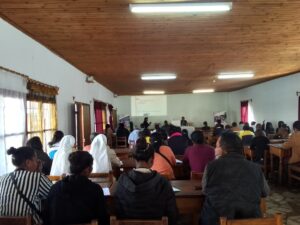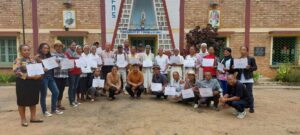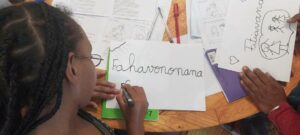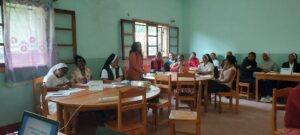In Madagascar violence against children is considered a means of education, whether it is at home or at school. Besides physical violence, there is a range of scenarios which hinders children development. In fact, the 40% of young Malagasy’s report having worked before the age of 18. Parents often say that they send them to work instead of going to school because they are poor. Making their children work is what makes them poor, by perpetuating a cycle in which education and the possibility of rising socially are not contemplated. Young girls are even more vulnerable to this violence. Early marriage is part of the Malagasy tradition and is a problem for minors and for the Country. More than one-third of girls between the ages of 15 and 19-years-old are already married or in a relationship and the 30% of the minors in the island have a child, as reported by a rating from the World Atlas 2015. This number reaches up to 50% in some areas of the capital. Another alarming statistic is the rising rate of sexual exploitation of girls for commercial purposes, particularly near petroleum and mining sites. The Marist Brothers, by virtue of their experience in the Madagascar context, have encountered several issues affecting children in the different regions of the Country:
- Child abuse
- Early marriages
- Various forms of addictions
- Aloneness
- Broken families
- Lack of leisure activities
The following statistics from a National Survey further highlight the prevalence of violence against children in Madagascar:
- The 86% of children have experienced some form of violent discipline in the home;
- The 62% of mothers or other caregivers think that physical punishment is necessary to properly raise and educate children;
- The 24% of girls aged 15-19 have experienced physical violence and 10% sexual violence from a partner;
- More than half of young people have experienced violence in schools.
In this context, this Project plays a particularly important and significant role in protecting children’s rights.
AIM OF THE PROJECT:
To be able to respond to the new global challenges, in particular the ones that affect Malagasy children, it is necessary to prepare the Marists and other Congregations to work in children education and to be active and proactive in child protection, dealing with any child-related issue with a child rights approach, providing them holistic training and skills. In this framework, this project promotes the participation of 660 people (Marists, La Sallians Daughters St Vincent de Paul, Saint Joseph of Cluny, Good Shepherd Sisters) in an 8-sessions-training course in 6 locations Within 7 Marist Schools across Madagascar that will enable them to acquire knowledge and skills in child protection and child rights. This MCD initiative in Madagascar is a vital part of the Marist strategic presence in Africa, to improve its educational services across the Country. The project aims to involve all educators and staff who are directly working with children in the schools. Program contents will include technical skills on children’s rights, child protection, abuse prevention learning, professional psychosocial support through individual and group counselling provided by clinical psychologists, children and youths involved in gangs. The program also aims to improve the emotional and psychosocial capacity of educators and teachers for their benefit and to better serve vulnerable children and their families. There is a need to provide practical advice on behaviour management, the handling of often complex and difficult cases, including child abuse, and to improve the skills of educators and teachers in promoting children’s rights.
THE PROJECT IN BRIEF:
Project goal is to train educators and staff members – Marist and no-Marists – who are directly working with children in the schools in Madagascar on child rights and child safeguarding through the implementation of a training program.
THE PROJECT IN NUMBERS:
- 230 direct beneficiaries (males)
- 430 direct beneficiaries (females)
- 1 training program on child rights and child safeguarding implemented
SDG Goals: 4, 5, 10, 16
Laudato Si’ Goals: 2, 5, 7





